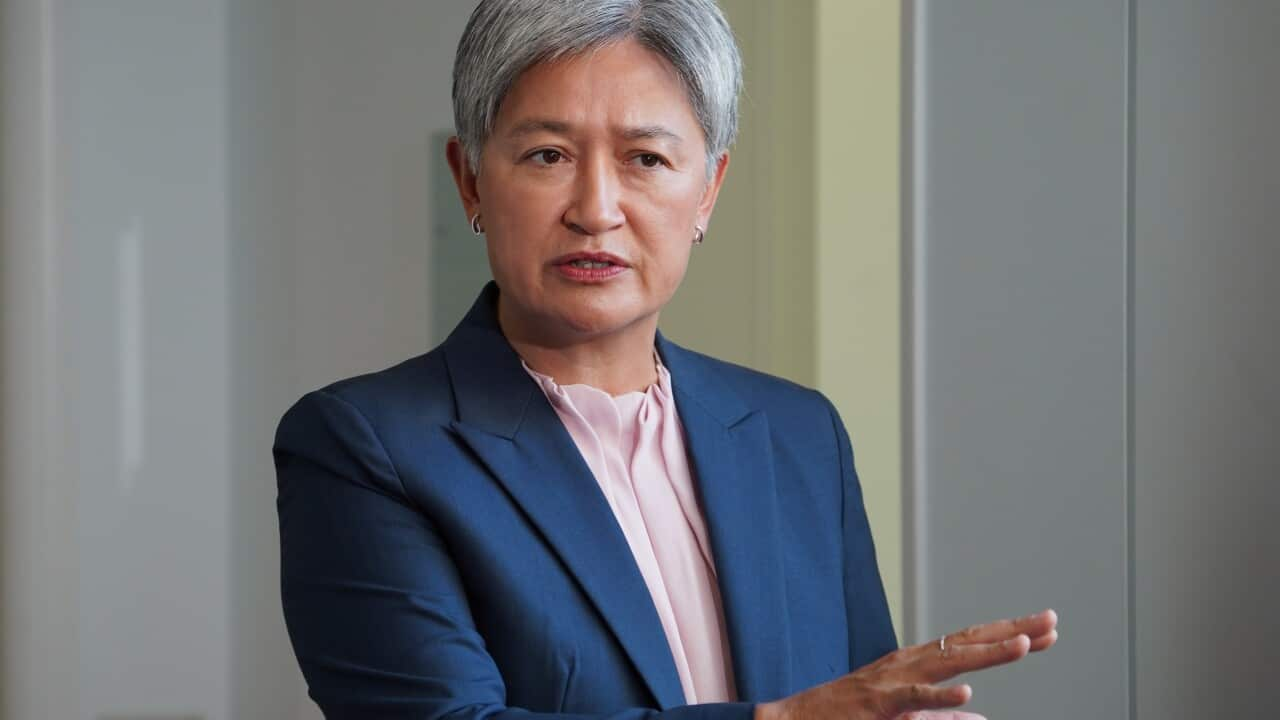Mark Myerson remembers the moment when he received the request to travel to join aid workers in Gaza.
He was on the way back from a camping trip, stopping for lunch with his wife Katrina Elliot, a fellow aid worker.
"And a message pinged on my phone. I looked at the message. And immediately I said something like: it's Red Cross. Katrina just looked at me, after I read the message. She said: I can tell by the look on your face. You really want to go, don't you? And I? I just said yes, I really, really want to go. So that was the call up."
Katrina says she had mixed feelings about it.
"I confess, there were some butterflies in my, in my tummy, thinking about him going to Gaza. But I knew the need for assistance and for medical care was so great there."
Within a fortnight, Mark was making the challenging journey into a warzone.
From Egypt, moving through Rafah Crossing into Gaza.
With expertise in water and sanitation, he joined aid workers drawn from members of the International Committee of the Red Cross.
Their task, to build a field hospital within five weeks in an area where tens of thousands of displaced Gazans had fled.
"It really was: go, go, go! Seven days, we would be up, you know, when the sun's up. And then hands on work, everything from setting up the electricity supply, the water and sanitation system for the hospital, the tents."
Those on the ground were wary of the dangers.
According to the Aid Worker Security Database, 255 aid workers have been killed in the Occupied Palestinian Territories since October 7.
For Mark, the conflict was a constant companion in his work.
"Feeling the shockwave from explosions, we would be hearing drones, we'd be hearing jets, the sounds of shelling and small arms, fire. All those things are sort of constant... constant visual and auditory reminders. There were only two other field hospitals in the same sort of broad location that were operating. They were under heavy stress already in terms of population needs. And yes, we had people regularly asking: when are you opening?"
When that day finally came - there were large queues out the door for care.
The field hospital opened with capacity for 200 patients, among them a pregnant mother.
Mark says he has vivid recall of that moment and what happened afterwards, with the birth of her child.
"There was there was real, a real elation and joy, I think, in the medical team and the tech team that were there for the hospital at that time as a reminder of why we were there; and the benefit for the community."
When disaster and conflict escalate, Australian aid agencies say they experience a surge in interest from volunteers.
But as Adrian Prouse, the head of international programs at the Australian Red Cross, points out - most of those on frontline are locals.
"The vast majority of humanitarians are local. They're living within their communities, they are volunteers. They are the staff members who are responding to small-scale disasters, those much more localised disasters, that their community needs support in responding to."
For Mark, leaving them behind was far from easy.
In the days after he had touched down back home in Brisbane, colleagues at the hospital he helped build were responding to a mass casualty event: the deadly strike on Rafah's refugee camp.
The Red Cross say the hospital received around 30 patients that night alone, seven in a critical condition.
"It is really hard to leave - because not only are you leaving people in a very challenging environment with the active conflict. The local population are facing this day in and day out - and you get to come home. That is a challenging thought. Those people are constantly in your mind when you come back."
Mark admits he still gets nervous before a trip.
Gaza is his third international deployment. His first (deployment) in 2014 was to Malaysia in the wake of severe flooding.
Then in 2018, he was sent to Myanmar for a 12-month stint in the dangerous Rakhine state.
With those long deployments, family can seem far away.
He drew support from his wife Katrina - also an aid worker who has shared experience of working abroad.
"I went to Rwanda and then when I came back, Mark left for Malaysia - and I went to Afghanistan. So it was a lot of... (we were) a little bit like ships in the night. But as I said, I think understanding why we do it, makes a big difference."
Mark says the motivation has never changed - and, if anything, has only strengthened over the years.
"And seeing such great need in in these areas of the world, particularly conflict and disaster settings. For me that was that was the driver. The need and seeing other people who inspired me to do want to do that work."





